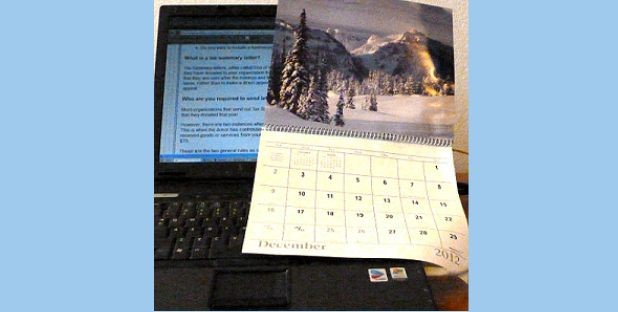FundRaiser Blog
The Who, What, and When of Tax Summary Letters
What is an End of Year letter? Usually it is one of two things:
- a letter which contains a summary of all donations that a donor has made to your organization in the past year. This is sent in January, to help donors with their taxes.
- an appeal letter which is sent in November and December to solicit donations.
This article will go more in depth about tax summary letters. You might be surprised at the return you get from this simple and helpful correspondence.
Tax Summary Letters
Tax Summary letters, often called End of Year letters, give donors information on what they have donated to your organization that year. These statements differ from the holiday appeal, in that they are sent after the holidays and their primary intention is to give information to the donor for taxes, rather than to make a direct appeal; however it is not uncommon to combine them with another appeal.
Besides being a service for your donors, sending Tax Summary letters also speaks well for you, and helps reinforce the image of a well-organized, responsive group in the donor's mind. It reminds donors of who you are and that they donated to your organization... and might want to donate again!
If you take the opportunity to restate your case and remind donors of why they donated, they might well be motivated to donate again. After the rush of fundraising during the holidays, quiet falls at the end of the year. When your letter arrives in January, often people will respond. You can more than pay for your mailing in this way.
Who, What, and When of Tax Summary Letters
Most organizations that send out Tax Summary letters do so to all donors, regardless of the amount that they donated that year.
However, there are two instances when the tax information will be particularly helpful to your donor. This is when the donor has contributed $250 or more in a single donation, or when the donor has received goods or services from your organization in exchange for a single payment of more than $75.
These are the two general rules as stated by The United States Internal Revenue Service (IRS):
- a donor is responsible for obtaining a written acknowledgment from a charity for any single contribution of $250 or more before the donor can claim a charitable contribution on his/her federal income tax return.
- a charitable organization is required to provide a written disclosure to a donor who receives goods or services in exchange for a single payment in excess of $75
For tax purposes, the IRS suggests that the following information be included in the letter:
- amount of money donor contributed
- description (but not the value) of non-monetary contribution
- statement that no goods or services were provided by the organization in return for the contribution, if that was the case
- description and good faith estimate of the value of goods or services, if any, that an organization provided in return for the contribution
- statement that goods or services, if any, that an organization provided in return for the contribution consisted entirely of intangible religious benefits
(for clarification see IRS publication 1771: http://www.irs.gov/pub/irs-pdf/p1771.pdf).
It is not necessary to include either the donor’s social security number or tax identification number on the acknowledgment. The IRS has no requirements for what form the tax summary needs to be in. Each donation may be listed as a single entry, or a summary of the entire year's giving may be used. Letters, postcards, or computer-generated forms are all acceptable to the IRS and they can be sent either by regular mail or by email addressed to the donor.
To be of the greatest service, send these letters no later than January 31 of the year following the donation. For the written acknowledgment to be considered valid by the IRS, a donor must receive the acknowledgment by the date on which the donor actually files his or her tax return for the year of the contribution.
Making Taxes Appealing
End of Year letters, which can refer either to appeal letters sent in November or December or tax summary letters sent in January, are both good publicity for your organization. Their purposes are somewhat different, but in both cases the general aim is the same - to appeal to your donors as a worthy organization to support.
To learn more about how FundRaiser can help with keeping in great contact with your donors
Take a look at some of the basic features of FundRaiser donor management programs

